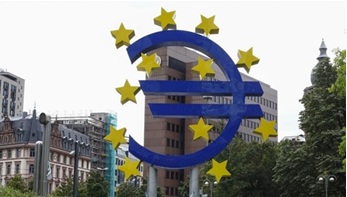Why in news?
- The European Union Council has allowed Bulgaria to adopt the Euro currency from January 1, 2026.
- With this, Bulgaria will become the 21st member of the Eurozone.

What is the Eurozone?
- The Eurozone is a group of countries that adopt the Euro as their official currency despite being members of the European Union (EU).
- Currently it includes 20 countries. With the inclusion of Bulgaria, this number will become 21.
Process of Bulgaria adopting the euro:
Bulgaria has fulfilled the "Maastricht criteria" required for euro adoption:
- Inflation control: 2.7% on average (limit 2.8%)
- Budget deficit: below 3%
- Public debt: less than 60% of GDP
- Long-term interest rate control
- Currency stability: successful participation in ERM-II (from 2020)
Formal approval:
- 4 June 2025: The European Commission and the European Central Bank (ECB) report declare Bulgaria 'ready'.
- 8 July 2025: The European Parliament and the Council pass the final legislative proposal.
What happens now?
- Bulgaria's current currency "lev" will be replaced at the fixed exchange rate of 1 euro = 1.95583 lev.
- From 1 January 2026 all transactions will be in euros.
About Bulgaria:
- Bulgaria is a Balkan country located in southeastern Europe whose capital is Sofia.
- Its current currency is the Lev, which will be replaced by the Euro from 1 January 2026.
- It is a member of the European Union (EU) and NATO.
- It borders Romania, North Macedonia, Serbia, Greece, Turkey, and the Black Sea.
European Union (EU):
- The European Union (EU) is a political and economic union consisting of 27 European countries.
- They work together with the aim of promoting mutual cooperation, peace, economic unity, and global influence.
- Beginning: In an effort to maintain peace after World War II.
- Formal establishment: In 1993 through the Maastricht Treaty.
- Previously called the European Economic Community (EEC).
- Headquarters: Brussels, Belgium
- Main objectives:
- To promote economic integration and creation of a single market
- To promote peace, stability and security
- To ensure free trade, movement, services and flow of capital among member countries
- To adopt a common currency (Euro) (not compulsory in all countries)
- Members: Austria, Belgium, Bulgaria, Croatia, Republic of Cyprus, Czech Republic, Denmark, Estonia, Finland, France, Germany, Greece, Hungary, Ireland, Italy, Latvia, Lithuania, Luxembourg, Malta, Netherlands, Poland, Portugal, Romania, Slovakia, Slovenia, Spain and Sweden.
|
Q. How many member countries will be there in the Eurozone after Bulgaria joins?
(a) 20
(b) 21
(c) 22
(d) 27
|

 Contact Us
Contact Us  New Batch : 9555124124/ 7428085757
New Batch : 9555124124/ 7428085757  Tech Support : 9555124124/ 7428085757
Tech Support : 9555124124/ 7428085757








